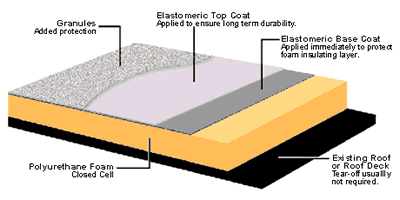FLAT ROOFING
At Aucacama Construction LLC, we take great pride in the high-quality flat roofing services we provide to our residential and commercial clients. With more than 20 years of experience in the industry, we use state-of-the-art technology and modern techniques to deliver exceptional results every time. Our roofing solutions include Build Up Roofing (BUR), Single-Ply Roofing, and Sprayed Polyurethane Foam Roofing (SPF).

At Aucacama Constructin LLC, we offer a wide variety of flat roofing colors, materials and finishes that can be customized to suit your needs. We have variables that work with many home styles as well as commercial solutions. Choose from our selection to find the perfect fit for your project.

Types of Flat Roofing
Our flat roofing service is second to none. We use only professional-grade materials and our expert jobs are both high-quality and affordable. Plus, our team of skilled contractors is always up for a challenge. So, whether you need a new flat roof installed, or repairs to an existing one, we've got you covered.

Build Up Roofing (BUR)
Is literally built by adding layers. It is most often made from alternating layers of roofing felt with different waterproofing materials.

Single-ply Roofs
It comes in two main types. Thermoset membranes which are manufactured from rubber polymers and Thermoplastic membranes.

Sprayed Polyurethane Foam (SPF)
Roofing foam is a relatively new product that is sprayed onto the roof as a liquid in order to form a single, continuous, seamless structure.
Flat Roofing FAQs
Do Flat roofs have problems? Leaks and lingering moisture are other common issues with flat roofs. If you're proactive and deal with these roof issues right away, you might be able to avoid a total roof replacement. Yes, any roof can be susceptible to leaks, but the water doesn't have anywhere to go with flat roofs.
How many years do flat roof last? On average, a flat roof has a lifespan of about 20 years. However, factors like roofing materials and maintenance play a role in the roof's actual lifespan. Some flat roofs can last for decades, particularly when they're properly maintained.
What are the 4 things to consider when designing a roof? Material. The type of material that you choose for your roofing system will have a major impact on its durability, physical appearance, longevity, and cost. Budget. Architecture. Color.
How often a flat roof should be redone? Typically, flat roofs have an average lifespan of 15 to 30 years, depending on the materials used and the quality of installation. Regular maintenance and inspections can extend this lifespan, but beyond a certain point, repairs become less cost-effective than a full replacement.
How risky is a flat roof? While flat roof houses can pose serious issues, there are plenty of homeowners happy with their flat roof properties. Ultimately, you need to weigh up the risks, be aware that you may face higher mortgage rates and costly repair bills, and decide if you love the property regardless.
How a bad flat roof looks like Cracks, tears, punctures and blisters are all indications of a flat roof membrane that is worn and in poor repair. There is every likelihood that water will be finding its way in. Similarly, a membrane that has been patched is a sign of previous problems and remedial work to fix leaks.
Are flat roofs easy to maintain? Not only are they highly durable, but they're relatively easy to maintain and straightforward to repair. Flat roofs are sturdy, long-lasting and reasonably priced. Although flat roofs are designed to last, you do need to put a bit of work into maintaining them to keep them in great shape.
Do flat roofs get hotter? Flat roofs are not the ideal choice in hotter climates, as they absorb more of the sun's heat than a pitched roof and pass it on to the building below. A flat roof is also not a good choice if you are not willing to perform periodic maintenance on it.





